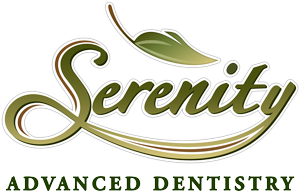Simple Steps to Avoid Cavities and Maintain a Healthy Smile With Serenity Advanced Dentistry
At Serenity Advanced Dentistry, we are dedicated to helping you maintain a healthy smile for life. One of the most effective ways toprevent cavitiesis through good dietary choices. While regular brushing, flossing, and professional dental visits are essential, what you eat plays a key role in your oral health by affecting the formation of dental plaque. In this blog, we’ll discuss common foods that can contribute to cavities and how you can make healthier choices to protect your teeth.
Dr. Gregg Taormina is here to answer any questions you may have. If you’re interested in learning more from ourPennsylvania dentist, reach out to our Bethlehem dental office at (610) 866-3161or our Stroudsburg dental office at (570) 992-2121. We also proudly serve patients coming from the Fullerton, Allentown, and Northampton areas.
What Are Cavities?
Cavities, also known as dental cariesor tooth decay,are holes or damaged areas that form in the hard surface of your teeth. They occur when plaque—a sticky, colorless film of bacteria—builds up on your teeth and reacts with sugars and starches in the foods you eat. This creates acid that erodes the tooth enamel, leading to the formation of cavities. If left untreated, cavities can grow larger and cause pain, infection, and even tooth loss. Luckily Dr. Taormina provides general dentistry servicesto ensure your smile remains healthy.
The process of cavity formation is gradual, and early-stage cavities often don’t cause noticeable symptoms. However, as cavities progress, they can cause sensitivity, pain, and visible damage to your teeth. The good news is that cavities are preventable, and avoiding certain foods is a great way to reduce your risk.
Foods You Should Avoid to Prevent Cavities in Bethlehem and Stroudsburg, PA
1. Sugary Snacks and Drinks
Sugar is a major culprit when it comes to tooth decay. When you consume sugary foods or drinks, the bacteria in your mouth feed on the sugars and produce acid. This acid attacks your tooth enamel, leading to cavities over time. Popular sugary snacks like candy, cookies, and sodas are the biggest offenders.
Tip:Opt for naturally sweet fruits like apples or berries instead of candy, and choose water or unsweetened beverages instead of sugary sodas.
2. Sticky Foods
Sticky snacks such as caramel, gummy candies, or dried fruits can easily cling to your teeth, making it harder for saliva to wash away the residue. This can increase the risk of cavities, as the sugar sits on your teeth for longer periods of time.
Tip:If you do indulge in sticky foods, be sure to rinse your mouth with water or brush your teeth afterward.
3. Starches and Refined Carbs
Foods like potato chips, white bread, pasta, and crackers are high in refined carbohydrates. These foods break down into sugar in your mouth, providing the bacteria in your mouth with more fuel to create acids that damage your enamel.
Tip:Choose whole grains like whole wheat bread and brown rice to minimize the impact on your teeth.
4. Acidic Foods and Drinks
Citrus fruits, tomatoes, and carbonated drinks can be acidic, and while they have many health benefits, frequent consumption can wear down your enamel. When enamel is weakened, your teeth become more susceptible to decay.
Tip:Drink acidic beverages like orange juice through a straw to minimize contact with your teeth, and follow up with a glass of water to help neutralize the acid.
5. Alcohol
Drinking alcohol in excess can lead to dry mouth, a condition where your mouth doesn’t produce enough saliva. Saliva is important because it helps neutralize acids and wash away food particles, reducing the risk of cavities.
Tip:If you do drink alcohol, be sure to stay hydrated and consider chewing sugar-free gum to stimulate saliva production.
6. Ice
Chewing on ice may seem harmless, but it can cause microfractures in your teeth, which can eventually lead to cavities and other dental issues. Over time, this can also weaken enamel, increasing the risk of tooth decay.
Tip:Avoid chewing on ice; instead, sip water or enjoy ice in your drink.
Beverages that Contribute to Dental Caries
Certain beverages can be just as harmful as foods when it comes to cavity formation. These drinks contain high amounts of sugar, which can lead to the production of acid by bacteria in the mouth.
Some of the most common beverages that contribute to dental caries include:
- Soda:Soda is one of the most common sources of sugar in the diet, and it can be particularly damaging to teeth. The high sugar content in soda can lead to the production of acid, which can damage tooth enamel and lead to cavities.
- Sports drinks:Sports drinks are designed to help athletes replenish electrolytes and fluids during and after exercise. However, they often contain high amounts of sugar, which can contribute to tooth decay.
- Fruit juice:While fruit juice can be a healthy choice, it can also be high in sugar. Consuming large amounts of fruit juice can lead to the production of acid in the mouth, which can damage tooth enamel and lead to cavities.
To reduce the risk of dental caries, it’s recommended to limit consumption of these beverages and opt for water or unsweetened drinks instead. Additionally, practicing good oral hygiene habits, such as brushing and flossing regularly, can help prevent tooth decay.
How to Protect Your Teeth from Cavities
Visiting yourlocal dentistis the best way to treat signs of tooth decay or cavities. However, there are several steps you can take at home to keep your smile healthy.
- Brush and Floss Regularly:Brush twice a day with fluoride toothpaste and floss daily to remove food and plaque. Replace your toothbrush every three months.
- Use Fluoride Toothpaste:Fluoride strengthens tooth enamel and helps resist decay. Choose ADA-approved toothpaste.
- Drink Water:Rinse your mouth with water after meals to wash away food particles, acids, and bacteria.
- Limit Snacking:Avoid constant snacking, especially sugary or starchy foods. Opt for healthier snacks like raw veggies or cheese.
- Consider Dental Sealants:Protective coatings on back teeth to prevent cavities, especially beneficial for children and teens with permanent teeth.
- Chew Sugar-Free Gum:Stimulates saliva production to neutralize acids and wash away food particles.
- Get Regular Checkups:Visit the dentist every six months fordental cleaningsand early detection of cavities. If you experience toothaches or mouth pain, see your dentist promptly as these symptoms may indicate underlying issues like cavities or tooth decay.
- Eat a Balanced Diet:Include calcium, vitamin D, and phosphorus-rich foods like dairy, vegetables, and lean proteins to strengthen enamel.
- Wear a Mouthguard:Protect your teeth from grinding or sports injuries with a custom mouthguard.
When to See a Dentist in Bethlehem or Stroudsburg, PA
Regular dental check-ups are crucial for preventing cavities and maintaining oral health. If you experience tooth sensitivity, pain, or notice visible damage, it’s important to see a dentist promptly. Early intervention can prevent more serious dental issues.
Some common signs that you need to see a dentist include:
- Tooth sensitivity:If you experience sensitivity to hot or cold temperatures, sweet or sour tastes, or pressure, it may be a sign of tooth decay or other dental issues.
- Tooth pain:If you experience pain or discomfort in your teeth or gums, it’s important to see a dentist promptly.
- Visible damage:If you notice visible damage to your teeth, such as cracks or chips, it’s important to see a dentist to have them repaired.
- Gum disease:If you notice signs of gum disease, such as bleeding or swelling gums, it’s important to see a dentist promptly.
By seeing a dentist regularly and addressing any dental issues promptly, you can help maintain a healthy smile and prevent dental caries.
Regular dental check-ups are crucial for preventing cavities and maintaining oral health. If you experience tooth sensitivity, pain, or notice visible damage, it’s important to see a dentist promptly. Early intervention can prevent more serious dental issues.
Take Action Now to Protect Your Smile
Your smile is one of the first things people notice, so it’s worth investing in its long-term health. By avoiding cavity-causing foods, practicing good oral hygiene, and making a few smart lifestyle choices, you can significantly reduce your risk of cavities and other dental issues.
If you’re in Bethlehem or Stroudsburg, PA, and want to ensure your smile stays healthy, the team at Serenity Advanced Dentistry is here to help. We offer a full range of preventive services, including cleanings, exams, and personalized dental care to keep your teeth cavity-free. When you’re ready tocontact our Pennsylvania dentist, reach out to our Bethlehem dental office at (610) 866-3161 or our Stroudsburg dental office at (570) 992-2121. If you live in the Fullerton, Allentown, and Northampton areas, please also feel free to reach out.
Don’t wait—let’s work together to keep your smile healthy and bright for years to come!



